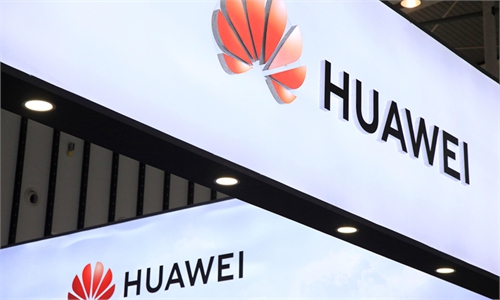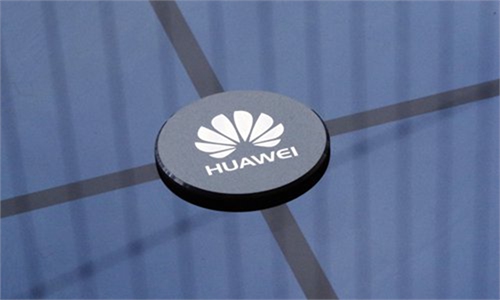UK’s trade with China at risk following Huawei ban
Investment, cooperation in financial services may also be hit

The surrounding roads are closed as an Extinction Rebellion protester demonstrates on the scaffolding surrounding the Elizabeth Tower, also known as the Big Ben, in London, Britain, on October 18. Photo: Xinhua

Graphics: GT
The UK could face a deceleration in its trade ties with China, after the country decided to strip Huawei from its 5G network rollout, Chinese analysts said Thursday. Investment and cooperation in financial services may also stall.
China on Wednesday lodged a stern protest over the UK's decision to remove Huawei from its 5G network, criticizing the UK as an accomplice in the US' politically driven crackdown on the Chinese company.
Foreign Ministry spokesperson Hua Chunying raised the question of whether China can still feel confident about the openness, fairness and non-discriminatory nature of the British market.
China will evaluate the situation in a comprehensive and serious manner and take all necessary measures to protect the legitimate interests of its companies, Hua said.
The UK ban on Huawei's 5G, along with its stance on Hong Kong and London's reported intention to show off its naval force in the South China Sea, has led some to think the China-UK relationship has entered a tumultuous period with grave economic implications.
Weaker trade links with the world's second-largest economy won't be good news for the post-Brexit UK economy, which shrank 19.1 percent in the three months to May 2020 due to the COVID-19 pandemic.
"Compared with the UK's traditional diplomatic doctrine, the move on Huawei might have been premature, and that might erode its interests," said Cui Hongjian, director of EU Studies at the China Institute of International Studies.
"So the Chinese government is assessing the matter… If there is retaliation, it would probably be carefully calibrated and there won't be carpet-bombing style countermeasures," said Cui.
However, there are three developments to watch, as bilateral economic and trade cooperation will likely take a hit.
Bilateral trade, which has grown rapidly in recent years, could see its growth momentum undercut, Cui said.
Financial cooperation, including the Shanghai-London Stock Connect program and accommodating the yuan's offshore business expansion, which relies on a high level of bilateral trust, may slow, Cui said.
Thirdly, bilateral investment talks may also be affected.
Within a day after China announced its intentions to take necessary countermeasures against the UK, some observers were already expressing concerns.
"There isn't much information on what measures are being considered by the Chinese government and it's difficult to predict… Hopefully, both countries can find amicable ways to handle their relationship, which is mutually beneficial," a source with a UK-based multinational consulting service provider in Beijing told the Global Times Thursday.
There are also voices reaffirming the deep mutual interests in continuing China-UK economic and trade ties.
"The CBBC is confident that everyone on both the UK side and Chinese side will continue to engage positively and pursue our common interest in constructive bilateral commercial relations," said Matthew Rous, chief executive of the China-Britain Business Council (CBBC).
Steven Lynch, managing director of the British Chamber of Commerce in China, told the Global Times that the chamber hopes that its members can be treated fairly and enjoy equal access to China's recent market reforms and openings.
Analysts said that those in the UK who believed the country had not benefited much from the "golden era" of the bilateral relationship with China, would likely see what would be lost as the "golden era" comes to an end.
The UK's bullying of Huawei is likely to reduce the recognition and popularity of British brands in the Chinese market, said Yu Qingjiao, secretary general of the Zhongguancun New Battery Technology Innovation Alliance.
The UK's automobile industry, which is weak in terms of competitiveness, has bet heavily on China, and it could be affected, said Yu. Road vehicles are the UK's third-largest export category to China, contributing 3 billion pounds ($3.77 billion) in export value in 2019, data from the UK's House of Commons Library showed.
"The UK should not have bowed to US pressure and moved to crack down on Huawei, but it did. It should prepare mentally for potential risks its own companies could face," said Yu.



